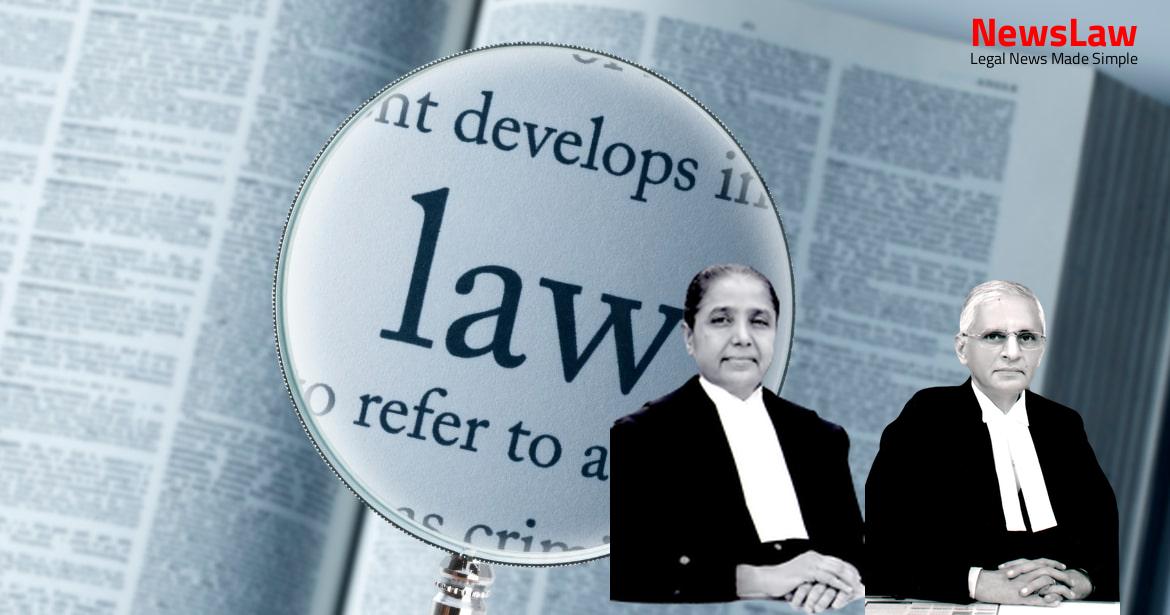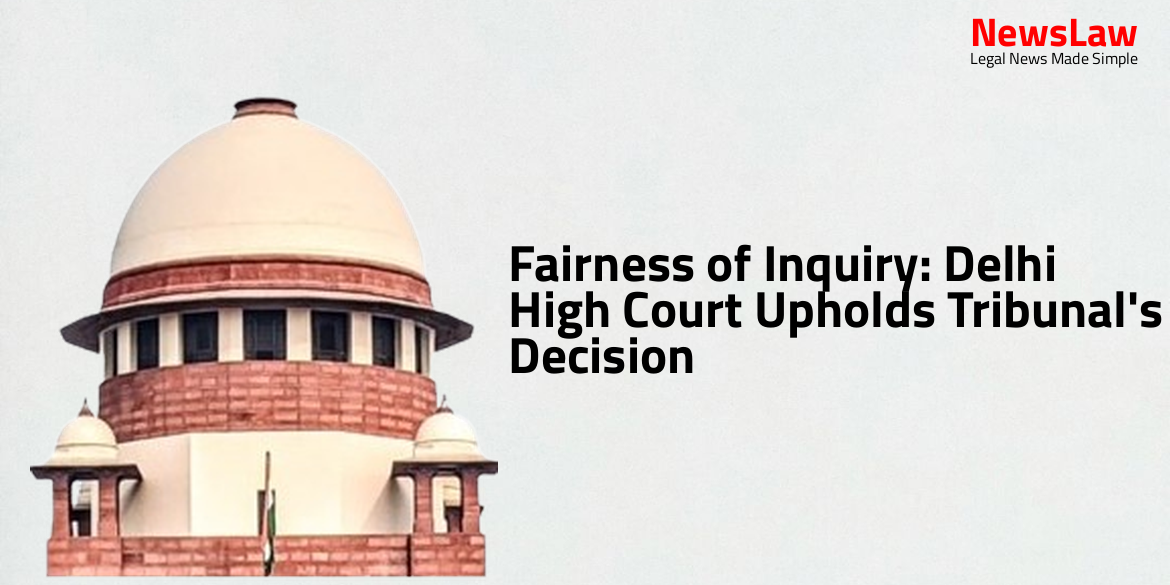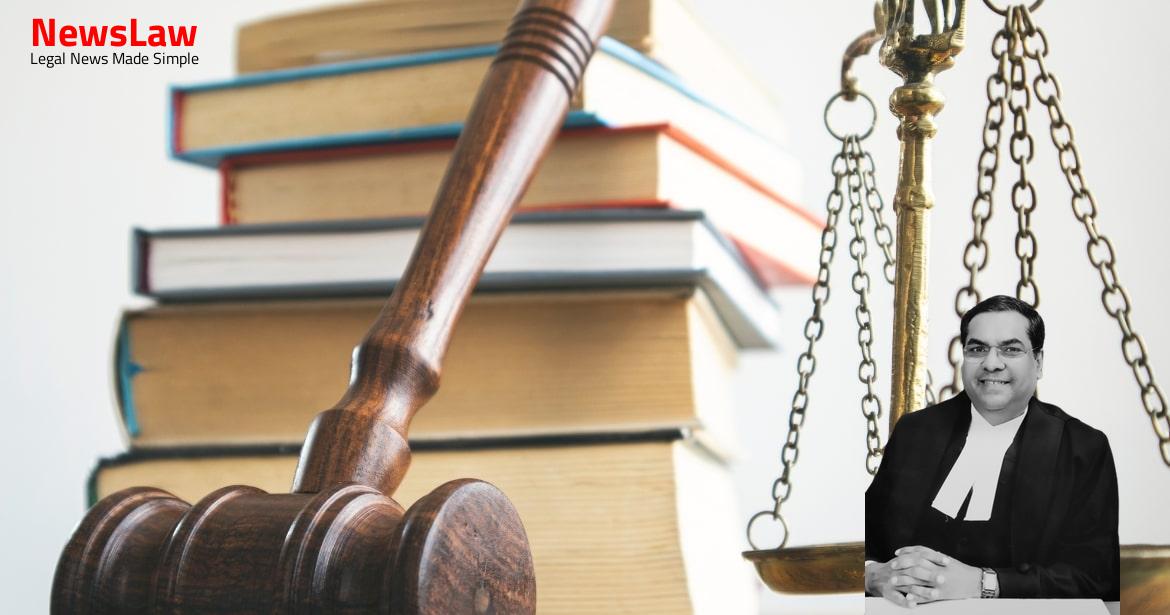In a significant legal ruling, the Supreme Court of India provided a verdict on the teacher recruitment case involving the setting of selection criteria discretion. This case stemmed from a dispute between the Delhi Subordinate Services Selection Board (DSSSB) and private respondents regarding the fixed minimum qualifying marks for selection as per Advertisement No.1/2006. The Court’s decision has implications for the maintenance of standards in teacher recruitment processes and the discretion of recruiting agencies. Learn more about the details and outcomes of this case.
Facts
- Private respondents filed Writ Petitions bearing Nos.16126-130/2006 challenging the discretion of DSSSB in fixing minimum qualifying marks for selection as per Advertisement No.1/2006.
- Contention was that this discretion violated directions in a previous judgment, seeking consideration for remaining vacancies without fixed marks and publication of results for all vacancies.
- DSSSB declared results for only 1638 posts out of total vacancies advertised due to introduction of cut-off marks, contrary to the direction in the previous judgment.
- Writ petitioners contended that limiting candidates through cut-off marks was arbitrary and discriminatory, affecting their right to employment.
- Corrigendum modified vacancies from 3348 to 2348 under different categories, but the Advertisement did not specify cut-off qualifying marks.
- The High Court of Delhi considered all writ petitions together, and the DSSSB had the right to fix the panel’s validity period.
- Private respondents, including the appellant in L.P.A.No.65/2008 and connected appeals, challenged the Court’s order in this appeal dated 03.11.2008.
- DSSSB conducted a written examination on 02.07.2006, where neither the private respondents nor other petitioners/appellants qualified.
- Clauses 25 and 26 in Advertisement No.1/2006 pertained to fixing minimum qualifying marks and non-disclosure of examination marks, respectively.
- Order dated 29.11.2007 passed by the Single Judge in W.P. (C) Nos.16126-130/2006 was interfered with.
- Division Bench directed the Municipal Corporation to appoint Shri Surender Singh and Shri Rakesh Sharma as Assistant Teachers (Primary).
- Order dated 03.11.2008 allowed the appeals and provided directions for the appointments.
Also Read: Solapur Municipal Corporation vs. Majarewadi Gram Panchayat Employees
Arguments
- The DSSSB must follow the requisition given by MCD for selection process, as they are just an agency to conduct interviews/tests and prepare panels.
- Executive policy decisions regarding recruitment eligibility criteria remain sustainable without statutory rules or laws.
- Allegations of discrimination were deemed not sustainable as the cut-off percentage criteria were uniformly applied to all candidates.
- The Court was made aware of a writ petition pointing out the quality of education in MCD and NCT schools being below standard in a Public Interest Litigation.
- The Court stated that there is no legally enforceable right and the writ petition was not maintainable.
- The Court should not set minimum standards for candidate selection, as it could impact student quality if unqualified teachers were hired.
- The Division Bench was found to have accepted the criteria of prescribing minimum marks in the selection process in 2008, indicating no conscious decision fault.
- The contention was raised against the Division Bench’s interference by fixing its criteria for selection and accommodating candidates who did not qualify for the posts.
- The judgment in ‘State of Haryana vs Subhash Chandra Marwah & Ors.’ was referred to, highlighting the government’s right to set higher scores to maintain competition standards.
- The DSSSB and appellant refuted claims of illegal or arbitrary power use for fixing cut-off marks to maintain education standards.
- The appellant argued that to maintain education standards, a cut-off higher than the bare minimum for qualifying was necessary, and there was no discrimination in the selection process applied to all candidates achieving above the set marks.
- The Division Bench was criticized for interfering in the process of judicial review without grounds of discrimination or arbitrariness.
- The DSSSB and MCD were noted to have different stands regarding teacher quality and merit bars for selection, justifying the fixed cut-off for recruitment.
- Despite higher scoring candidates being available, the Division Bench erred in directing selection of lower-scoring private respondents.
- The DSSSB began publishing minimum percentage of marks for transparency, as noted by the Court.
- The Single Judge considered the decision in ‘Kuldeep Singh’ extensively, on which the writ petitioners relied heavily.
- The learned counsel for the private respondents defended the order passed by the Division Bench.
- They referenced a previous case to argue that selecting the private respondents would not harm the appellant MCD as no other candidates had challenged their selection earlier.
- The Division Bench, in a previous hearing, had considered all aspects and concluded that the private respondents could be accommodated without setting a precedent for others.
- The counsel mentioned that even if other candidates now approach the Court, they would not be entitled to claim benefits due to the relief granted to the private respondents.
- The petitioners were aggrieved by specific clauses in the recruitment advertisement for Assistant Teacher (Primary) for the benefit of the appellant MCD.
- The impugned clauses gave full discretion to the Board to set minimum qualifying marks for selection in each category.
Analysis
- The Division Bench in the case of L.P.A.No.65/2008 and connected appeals considered the issue of unfilled vacancies in the selection process for Assistant Teachers
- Private respondents were marginally below the last selected candidate in the merit list and sought selection despite not meeting the cut-off percentage
- The Division Bench exceeded its jurisdiction by evolving its own criteria for selection and directing the selection of candidates who did not meet the set standards
- The discretion of the Selection Board (DSSSB) in fixing minimum qualifying marks was upheld by the court, as it ensured the maintenance of minimum standards for teacher recruitment
- Judicial interference to lower the bar for selection would impede the employer’s right to choose suitable candidates and cause injustice to other participants
- The Court observed that candidates had the opportunity to challenge the criteria before participating in the selection process, and not doing so waives any subsequent grievance
- The Appellants were directed for selection by the Division Bench based on vacancies remaining unfilled and narrow differences in marks obtained
- The DSSSB was directed to consider the appellants for appointment against the remaining vacancies despite their marginal marks difference compared to the last selected candidate
- Employer has the discretion to determine the range of selection
- Recruiting agency is not bound to fill all available posts
- Court held in the case of Ashwani Kumar Singh vs U.P. Public Service Commission & Ors. (2003) 11 SCC 584 that cut-off positions fixed by the employer should not be altered unless completely irrational or tainted with malafides
- The benefit provided to the private respondents in this case should not be based on the principles from the U.P. Jal Nigam case, as done by the Division Bench.
- The order from 03.11.2008 by the Division Bench in L.P.A. No.65/2008 has been deemed unsustainable and set aside.
- The appeal has been successful and allowed, with no costs imposed.
Also Read: Jagdishchandra v. Joint Charity Commissioner & Ors.
Case Title: MUNICIPAL CORPORATION OF DELHI Vs. SURENDER SINGH .
Case Number: C.A. No.-005588-005588 / 2010



